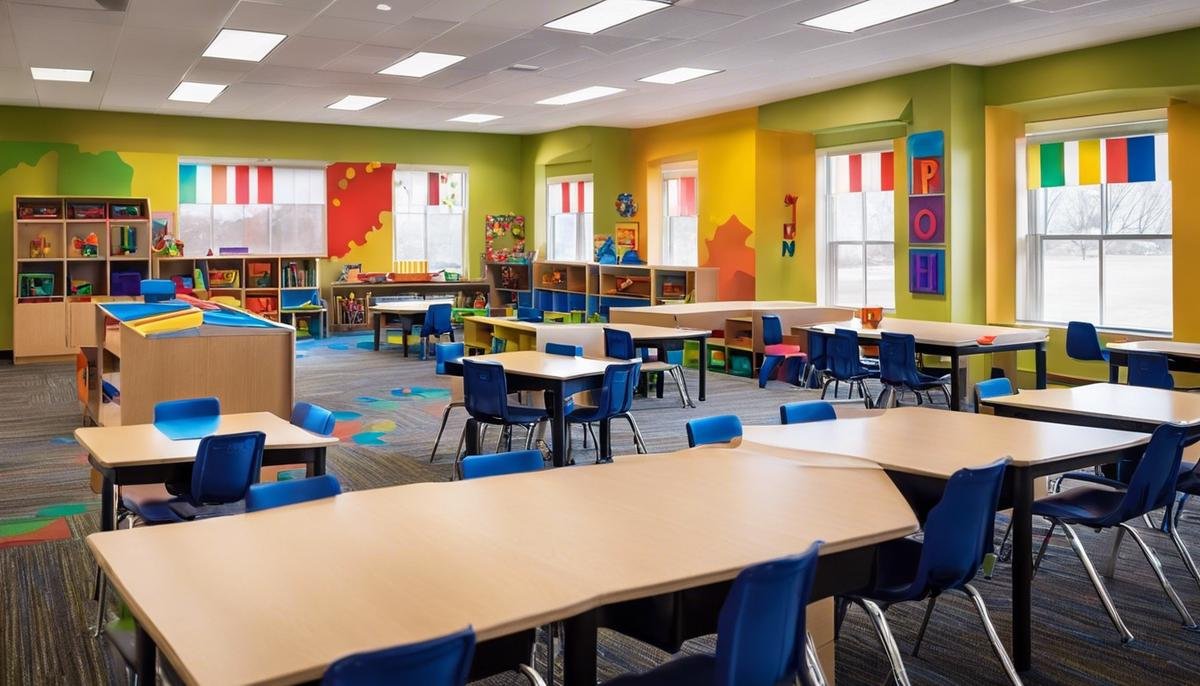
Autism spectrum disorder, often simply known as autism, is a broad range of conditions that affect individuals in different ways, particularly in areas of social interaction, communication skills, and self-regulation. Understanding autism, its impact on learning, and the crucial role of specialized education for children diagnosed with this condition is integral for their personal development and societal integration. This discourse serves to shed light on the essence of autism, the significance of specialized education, and a brief overview of acclaimed autism schools in Minnesota. Moreover, it aims to assist parents and guardians in their quest to choose the most suitable school for their child with autism, taking into account varied considerations from location to school culture.
Understanding Autism
Autism, also known as Autism Spectrum Disorder (ASD), is a developmental disorder that impacts a child’s social interaction, communication, and behavior. These attributes can range from mild to severe, hence the term “spectrum.” Symptoms generally appear in early childhood and can manifest in various forms, from avoiding eye contact, having difficulty with conversation, or repetitive behaviors. It’s essential to understand that every child with autism is unique and may display different characteristics.
In terms of learning, children with autism often have distinct learning styles. They might excel in visual and hands-on activities but struggle with abstract concepts or skills that require multi-step instructions. It can also affect their ability to interact with their peers, making group activities a challenge at times. Language development can also be more complicated for children with autism, which may impact their ability to express thoughts or understand concepts being taught.
But don’t let this information be discouraging! The incredible thing about children, including those with ASD, is their remarkable resilience and ability to adapt. With individualized teaching strategies, behavioral therapy and a supportive environment, they can thrive despite any learning differences. Remember, every child is unique and brings their special gifts to the world. Being attentive, patient, and flexible is key when supporting children with autism. Opening the doors of communication can pave the way to a fulfilling and enriching journey in learning and life alike.

The Importance of Specialized Education for Children with Autism
Choosing the right autism school for a child can be instrumental in fostering their academic and social growth. This isn’t just about the academics of reading, writing, and arithmetic, but also the essential life skills that contribute to an independent, fulfilling life. With the variety of symptoms associated with autism, each child’s development across the spectrum varies, and what may work well for one might not work for another. Hence, finding a school that offers a bespoke approach, tailored to a child’s individual needs, is paramount.
Autism schools understand the unique learning styles of children with autism and are equipped to fulfill their pertinent educational requirements. These institutions make use of a constellation of teaching strategies, aimed at addressing challenges and promoting the strengths of each student. Whether it’s accommodating to their visual-learning prowess or breaking down abstract concepts into easier and understandable units, they have strategies in place to ensure these learners comprehend all that they’re taught.
Additionally, social interaction, a substantial challenge faced by children with autism, is rigorously addressed in these specialized institutions. Activities designed to improve peer interaction and nurture social skills are integrated into the school curriculum. These exercises not only foster social aptitude, but also encourage the development of communication skills, another area often impacted by autism. By choosing the right autism school, parents are equipping their children with the tools to thrive not just in a classroom, but in the larger community as well.
A great deal of patience, attentiveness, and flexibility is essential when nurturing a child on the autism spectrum, and these are values that are at the core ethos of every dedicated autism school. Selecting such a school is a significant step towards creating a supportive and understanding environment for your child, celebrating the uniqueness and special gifts they bring into the world, and fostering their resilience. It’s about creating opportunities for them to reach their full potential, while also teaching them to navigate the world confidently and independently.

Overview of Autism Schools in Minnesota
In the quest to find exceptional autism schools in Minnesota, two institutions that standout are Lionsgate Academy and Fraser school. Each of these poignant establishments has an impressive commitment to nurturing the potential of students with Autism Spectrum Disorders (ASD) while also aiding in independent growth.
Lionsgate Academy is a public charter school which offers its services for grades 7 through 12. It stands out with its keen focus on ‘transition,’ an approach that ensures students develop the necessary skills for independent living and employability beyond their school years. The curriculum provides individualized academics with a blended model of in-person and online learning. Students are given hands-on educational experiences coupled with a curriculum that includes practical lessons such as personal finance management. In essence, Lionsgate offers an enriching environment that fosters academic advancement and social achievement.
Fraser school is another stellar option. Since 1935, Fraser has cultivated a strong tradition of serving children with special needs. Offering a range of services from education to healthcare, Fraser stands as a holistic establishment committed to addressing the diverse needs of children with autism. Also, it is worth noting that Fraser school incorporates therapies and services into the daily schedule of students, minimizing the pressure to schedule appointments outside school hours. Notably, they even offer art and music therapies to augment traditional teaching methods and provide an expressive outlet for their students.
Both of these top-notch institutions embody a compassionate, supportive, and attuned environment that understands and respects the differences and unique abilities of children with autism. From personalized learning strategies to hands-on experiences, these schools indeed promise a nurturing and understanding environment for children on the autism spectrum. Each institution’s heartwarming commitment to care, patience, and flexibility reflects in their teaching, making Minnesota a great place for families seeking out specialized autism schools.

Choosing the Right School for Your Child
When selecting the right autism school in Minnesota for your child, it’s essential to take into account a few key factors that can greatly influence your child’s learning experience. One vital consideration is the level of expertise that a potential school has regarding autism. The faculty and staff should be fully trained and experienced in dealing with the complexities and intricacies unique to each child along the spectrum. Their curriculum should reflect the latest research-based approaches and offer proven strategies for serving children with autism. This ensures that your child will receive the best possible education and support tailored to their specific needs and abilities.
Another important aspect to consider is the educational environment. A top-notch autism school will have a safe, nurturing, and stimulating atmosphere that fosters social, emotional, and academic growth. The environment should be flexible, adaptable, and as predictable as possible to minimize potential stressors for those with sensory sensitivities. Small class sizes, structured routines, and individualized attention can greatly benefit children with autism.
Lastly, it’s critical to remember that autism is not just about academics; fostering independence and social skills is equally important. Therefore, choose a school that values these skills and incorporates them into their curriculum. Minnesota is home to exceptional autism schools like Lionsgate Academy and Fraser school, which provide a well-rounded education that includes life skills training, therapy services, and extracurricular activities. This type of holistic approach considers all aspects of a child’s development, ensuring that they are well-equipped for life beyond the classroom.
Finding the right school for your child is one of the most significant decisions you will make as a parent, and it could shape the trajectory of their life. Therefore, it’s important to do your research, ask questions, and visit prospective schools. And remember, it’s not about finding the ‘best’ school, but rather the ‘right’ school that will meet your child’s unique needs and help them thrive.

Recognizing the centrality of specialized education in empowering children with autism to harness their potentials, it is crucial for parents, caregivers, educators, and the society at large to seek and prioritize such institutions. Autism schools, like those renowned ones in Minnesota, address this very need, offering autism-specific curriculum and learning environments which ensure that each child achieves maximum growth and independence. Providing a supportive setting that promotes their unique strengths, these schools enable learners with autism to surmount learning challenges and thrive both academically and socially. Choosing such a school for a child with autism, albeit daunting, is an invaluable step towards fostering their development, and it is a process that warrants thoughtful deliberation and thorough examination of potential options.




